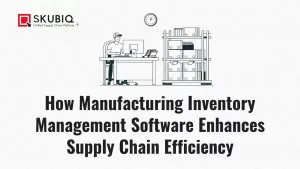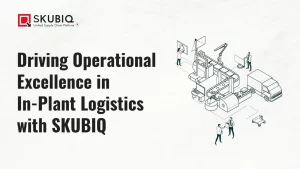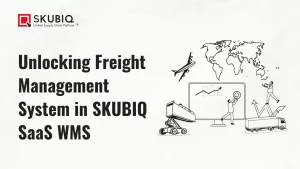Blockchain technology has rapidly evolved from a niche interest to a transformative force across multiple industries. One of the most compelling sectors where blockchain has demonstrated its immense potential is Supply Chain Management (SCM). This article explores the advantages of blockchain technology and its practical applications in SCM, providing a comprehensive understanding of how this technology is revolutionizing the industry.
Understanding Blockchain Technology
Before diving into the advantages and applications, it’s crucial to grasp what blockchain technology entails. Blockchain is a decentralized digital ledger that records transactions across many computers in a way that ensures the data is secure, and transparent, and cannot be altered retroactively. This feature makes blockchain an ideal solution for industries that require high levels of data integrity and security.
Key Features of Blockchain
- Decentralization: Unlike traditional databases that are controlled by a single entity, blockchain operates on a decentralized network, reducing the risk of data manipulation.
- Transparency: Every participant in the blockchain network has access to the same data, promoting transparency and trust.
- Security: Cryptographic algorithms secure data on the blockchain, making it highly resistant to hacking and unauthorized access.
- Immutability: Once a transaction is recorded on the blockchain, it cannot be altered or deleted, ensuring the integrity of the data.
Advantages of Blockchain Technology in SCM
Blockchain technology offers numerous advantages in Supply Chain Management, addressing some of the most significant challenges faced by the industry. These advantages include enhanced transparency, improved traceability, increased efficiency, and cost reduction.
Enhanced Transparency
One of the primary advantages of blockchain in SCM is its ability to provide unparalleled transparency. In traditional supply chains, data is often siloed, with each participant maintaining their records. This lack of transparency can lead to discrepancies, fraud, and inefficiencies.
Blockchain addresses this issue by providing a single source of truth that all participants can access. Every transaction, from the procurement of raw materials to the delivery of finished products, is recorded on the blockchain. This level of transparency ensures that all participants have real-time access to accurate information, reducing the risk of disputes and fraudulent activities.
Improved Traceability
In today’s globalized economy, supply chains have become increasingly complex, with goods often passing through multiple intermediaries before reaching the end consumer. This complexity makes it challenging to trace the origin of products, leading to issues such as counterfeiting and non-compliance with regulations.
Blockchain technology enhances traceability by providing an immutable record of every transaction. This feature is particularly valuable in industries where product origin is crucial, such as in the food and pharmaceutical sectors. For example, in the event of a product recall, blockchain allows companies to trace the affected products back to their source quickly, reducing the risk of harm to consumers and minimizing the financial impact on the business.
Increased Efficiency
Traditional supply chains are often bogged down by inefficient processes and paperwork. Blockchain technology streamlines these processes by automating transactions through smart contracts. These self-executing contracts automatically enforce the terms of an agreement when predefined conditions are met, eliminating the need for intermediaries and reducing the time and cost associated with manual processing.
Moreover, blockchain’s decentralized nature allows for faster transaction processing and settlement times, further increasing the efficiency of supply chain operations. By reducing the reliance on intermediaries and automating processes, blockchain helps companies streamline their supply chains, ultimately leading to faster delivery times and reduced costs.
Cost Reduction
Cost reduction is a significant advantage of blockchain technology in SCM. By eliminating intermediaries and reducing the need for manual processing, blockchain can significantly lower operational costs. Additionally, the increased efficiency and transparency provided by blockchain lead to fewer errors, disputes, and delays, further reducing costs.
Blockchain also enables more accurate forecasting and inventory management by providing real-time data on supply chain activities. This visibility allows companies to optimize their inventory levels, reducing the costs associated with overstocking or stockouts.
Practical Applications of Blockchain in SCM
The practical applications of blockchain technology in Supply Chain Management are vast and varied, with numerous companies already leveraging this technology to improve their operations. Below are some of the most notable applications.
Product Provenance and Authentication
One of the most common applications of blockchain in SCM is product provenance and authentication. Consumers are increasingly demanding transparency regarding the origin and authenticity of the products they purchase. Blockchain enables companies to provide this information by creating a tamper-proof record of a product’s journey from its origin to the end consumer.
For example, in the luxury goods industry, blockchain can be used to verify the authenticity of high-value items such as jewelry and watches. By scanning a QR code or RFID tag, consumers can access a blockchain record that confirms the item’s authenticity and provides information about its origin.
Supply Chain Visibility and Collaboration
Blockchain technology enhances supply chain visibility by providing all participants with real-time access to data. This visibility is particularly valuable in industries where supply chain collaboration is critical, such as in the automotive and electronics sectors.
By using blockchain, companies can share information about inventory levels, production schedules, and shipment status with their suppliers and partners. This level of collaboration helps reduce delays, optimize production schedules, and ensure that all participants are working with the same information.
Compliance and Regulatory Reporting
Compliance with regulations is a significant concern for many industries, particularly those dealing with food safety, pharmaceuticals, and hazardous materials. Blockchain technology simplifies compliance and regulatory reporting by providing an immutable record of all transactions.
For instance, in the pharmaceutical industry, blockchain can be used to track the production and distribution of drugs, ensuring that they meet regulatory standards and reducing the risk of counterfeit products entering the market. This application is particularly relevant in the context of the Drug Supply Chain Security Act (DSCSA), which requires pharmaceutical companies to track and trace prescription drugs distributed in the United States.
Sustainable Supply Chain Management
Sustainability has become a critical consideration for companies across all industries. Consumers and regulators alike are increasingly demanding that companies demonstrate their commitment to environmental and social responsibility. Blockchain technology can help companies meet these demands by providing transparent and verifiable records of their sustainability efforts.
For example, blockchain can be used to track the environmental impact of a product throughout its lifecycle, from the sourcing of raw materials to its disposal. This level of transparency allows companies to verify their sustainability claims and provides consumers with the information they need to make informed purchasing decisions.
Conclusion
Blockchain technology offers significant advantages in Supply Chain Management, including enhanced transparency, improved traceability, increased efficiency, and cost reduction. Its practical applications are already transforming industries, from product provenance and authentication to supply chain visibility and compliance reporting. As the technology continues to evolve, its impact on SCM is expected to grow, further revolutionizing the way companies manage their supply chains.



